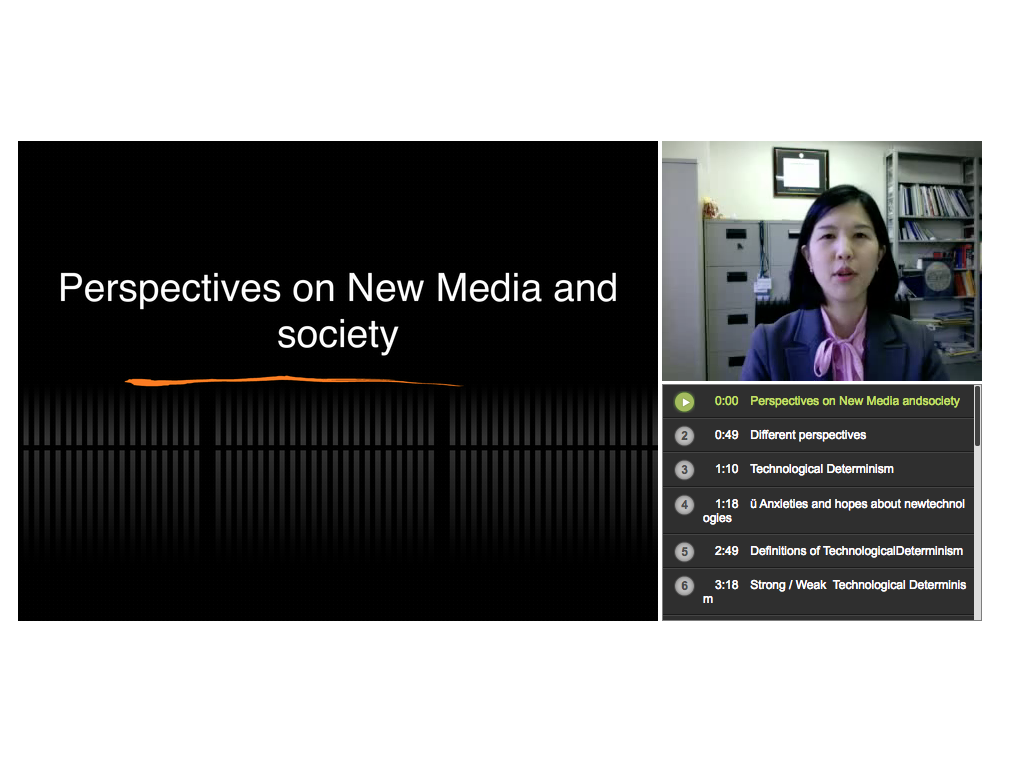[GES027] Online Lectures and Assignments to Further Understanding (Cloud Campus + Moodle)

To further students’ understanding of particular topics, 40-minute and 20-minute online lecture was recorded on video and students were instructed to submit two questions after watching the video as an assignment. Class time was used for in-depth discussion of the topics in the online lectures.
| Course Instructor: | Joo-Young JUNG |
| Course Title: | GES027 New Media and Society in Everyday Life |
| Term: | 2017 Winter |
| Enquiry: | To further students’ understanding of particular topics, the instructor wanted to record a lecture for students to watch online before class. |
| Support: | Using Cloud Campus, an application to create online course materials, the instructor created an online video of a 40-minute lecture. Students were instructed to submit two questions on the online lectures as a class assignment. Students viewed the video before class to further their understanding of the topic, so the class time could be focused on discussion. |
| Tools: |
• Cloud Campus • Moodle (Quiz) |
| Reference: | FD-Newsletter, vol. 23, no. 1 (“ICT Tools to Support Teaching and Learning: An Overview with Examples from ICU Courses”) |
(From the Course Instructor)
In the Winter Term of 2017 for my General Education course titled New Media and Society in Everyday Life, I utilized Cloud Campus to record one of my lectures for flipped learning.
The content of the lecture was about two major perspectives in understanding the relationship between communication technology and society: technological determinism and social shaping of technology. Students’ understanding of the two perspectives was crucial for my course and I wanted to spend sufficient time discussing the perspectives and applying them to everyday life examples.
Considering the limited class time, I decided to employ the flipped classroom for this unit. I recorded a 40-minute lecture in my office with PowerPoint slides showing on the side. I received detailed instructions from the Center for Teaching and Learning office on how to record a lecture and link it to Moodle. The process was smooth. Students were instructed to watch my lecture before a regular class and upload their comments or questions about the online lecture on Moodle.
In the class after the online lecture, I shared several comments and questions from the students and also raised several discussion questions, which led to a productive class discussion. I recommend the flipped classroom to those who wish to maximize the class time for questions & answers and discussion. Particularly when you have to teach relatively abstract theories or concepts, it would be worthwhile to have students watch your lecture in advance and use the class time to give students an opportunity to apply the theories/concepts to actual cases or examples.
(Joo-Young, JUNG, Department of Society, Culture, and Media)

